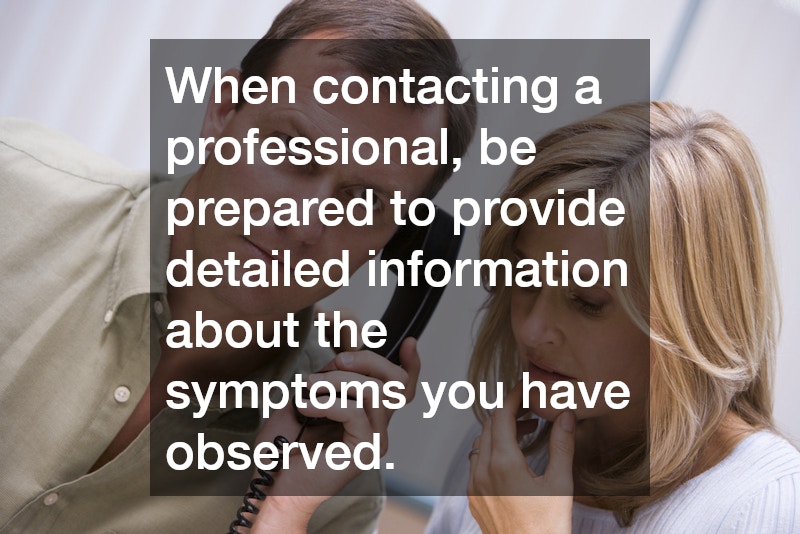HVAC emergencies can occur at the most inconvenient times, causing discomfort and potentially leading to serious issues if not promptly addressed. Knowing the first steps to take in such situations can help mitigate damage, ensure safety, and restore comfort quickly. This guide aims to equip you with the essential knowledge to effectively handle HVAC emergencies and ensure your household remains safe and comfortable.
How to Identify an HVAC Emergency
Recognizing Unusual Noises
Identifying unusual noises is a critical first step in recognizing an emergency hvac situation. Rattling, banging, or screeching sounds might indicate a mechanical failure, such as a loose component or a malfunctioning motor.
Understanding these auditory signals can help you distinguish between normal operational sounds and those that require immediate attention.
Normal operational sounds typically include soft humming or gentle whooshing, which are no cause for concern. In contrast, loud or persistent noises should prompt you to investigate further, as they often forewarn of potential system failures. Early detection of these sounds allows you to take prompt action, thereby preventing more extensive damage.
Noting Sudden Temperature Changes
Sudden temperature changes can be indicative of an HVAC emergency, often pointing to a malfunction in the system. While minor fluctuations could result from changing weather conditions, significant or abrupt temperature shifts may signal a broken thermostat, refrigerant leaks, or ductwork problems. Paying attention to such changes can help you determine when an immediate response is warranted.
Ensuring a stable indoor climate is crucial, and any erratic temperature shifts should be closely monitored. One quick check is to compare the temperature reading from your thermostat with other thermometers in the house. Discrepancies may indicate that the thermostat itself is malfunctioning and needs repair or replacement.
Detecting Unpleasant Odors
Unpleasant odors emanating from your HVAC system often signify problems that require immediate attention. These odors can range from musty smells, indicating mold or mildew in the ducts, to burning smells that suggest electrical issues or overheating components. Recognizing these olfactory signs can help you address potential hazards before they escalate.
Investigating the source of these odors requires caution to ensure safety. For instance, a rotten egg smell could indicate a natural gas leak, necessitating an immediate evacuation and contact with emergency services. On the other hand, a musty smell might be addressed by checking air filters or ducts for mold growth.
Immediate Actions to Take During an HVAC Emergency
Turning Off the System
One of the immediate actions to take during an HVAC emergency is safely shutting down the system. This step is crucial to prevent further damage to the unit and to reduce safety risks, such as electrical fires or gas leaks. By turning off the system, you can also protect your home’s electrical network and ensure a safer environment.
To safely shut down your HVAC system, locate the power switch or the circuit breaker dedicated to the unit and turn it off. This ensures that no electricity is flowing into the system, allowing you to inspect for visible issues without the risk of electric shock. Always keep in mind that safety should be your highest priority during an HVAC emergency.
Although turning off the system can temporarily disrupt comfort, it is a temporary sacrifice for the greater goal of preventing additional harm. If you are unsure of the shutdown procedure, consult your user manual or seek professional advice. This preventive step allows you to maintain control over the situation until a professional can diagnose and repair the problem.
Contacting a Professional
Once the system is safely shut down, the next step is to contact a reliable HVAC professional for emergency repair services. Look for service providers with good reviews, proper licensing, and experience in handling HVAC emergencies. Promptly reaching out to a professional helps ensure that the problem is accurately diagnosed and efficiently resolved.
When contacting a professional, be prepared to provide detailed information about the symptoms you have observed, such as noises, odors, and temperature changes. This information assists the technician in pinpointing the potential source of the issue and ensures a quicker repair process. Additionally, clear communication can help the professional come prepared with the necessary tools and parts for the job.
Experiencing an HVAC emergency can be stressful, but knowing how to identify the problem, take immediate corrective actions, and contact a professional can help resolve the situation quickly and efficiently. Being prepared for such emergencies ensures safety and comfort are restored promptly. By following these guidelines, you can confidently face unexpected HVAC troubles and protect your home and loved ones from potential harm.
.



